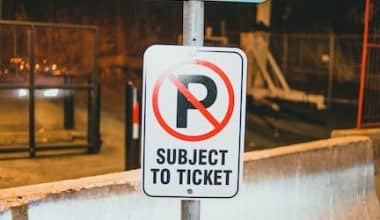A “ghost” workers’ compensation policy is called such if it does not cover the company’s owner and no other employees. This type of coverage is not meant to provide actual workers’ compensation benefits unless the company has employees or is responsible for an uninsured subcontractor. Most of the time, a subcontractor will buy “ghost insurance” to meet the coverage rules set by the general contractor or other organization that hired the subcontractor. Not every state provides ghost insurance. Here’s everything you need to know about ghost workers’ comp policy.
What Is the Workers’ Comp Ghost Policy?
A workers’ comp ghost policy can help self-employed business owners land clients and comply with state laws. A workers’ comp ghost policy is a low-cost type of workers’ compensation insurance developed expressly for independent contractors who do not have employees but need confirmation of workers’ comp coverage for their state’s legal requirements or client requests.
What Does a Workers’ Comp Ghost Policy Cover?
Workers’ compensation “ghost” policies, in essence, provide no genuine insurance coverage but instead serve as evidence of workers’ compensation insurance for clients who seek it or for states that legally require it. Workers’ compensation ghost plans give clients and state governments peace of mind that independent contractors can provide workers’ compensation coverage if they decide to hire an employee.
In the construction industry, for instance, a third-party subcontractor might hire on the condition that they provide proof of workers’ compensation insurance. If the subcontractor decides to hire more workers, the general contractor will want to protect themselves from lawsuits in case of an accident on the job site. However, the subcontractor may not be willing to pay for a full workers’ compensation policy. If the client requires workers’ compensation insurance but the subcontractor’s budget won’t stretch that far, the best option is likely a “ghost” policy.
Ghost Policies & Workers’ Comp Insurance
Some sole proprietors who are legally obligated to get workers’ compensation insurance but have no employees instead opt for a “ghost policy.” Workers’ compensation insurance policies are not required by law in most states, although some states do need “ghost policies,” which do not cover any specific employees. In exchange for a fee, the “ghost policy” will give prospective customers paper proof of insurance coverage:
#1. Workers’ Compensation Insurance Functions
Workers’ compensation insurance serves as a binding contract between companies and employees. Employees, in turn, receive benefits regardless of who is to blame. Although most states have identical legislation surrounding workers’ compensation insurance, premium prices, benefit payouts, and claim procedures frequently differ.
#2. Ghost Workers Comp Policy Functions
The basic ghost insurance policy says that the owner of the business buying the policy is not covered and that the business has no employees. The insurance is called a “ghost policy” because it doesn’t really help in any way. When a company hires an employee while the ghost insurance is in effect, the policy offers interim protection for that employee until the company gets functional workers’ compensation coverage.
#3. Insurance Policies and Proof of Insurance
The major reason for purchasing a ghost policy is to demonstrate workers’ comp insurance coverage. Building contractors, for example, need proof of insurance before they can take on new work. A ghost policy’s documentation enables one-man operations to qualify for potentially lucrative contracts.
#4. Insurance Fraud Potential
In some cases, a company will claim to have no employees while purchasing a low-cost “ghost” policy. In reality, the company seeks to conceal its true employees by classifying them as “independent contractors” or “1099 employees.” Such schemes typically come to light when one of the company’s “independent contractors” is not happy with the job. When events like this occur, both the corporation that purchased the ghost policy and the insurer who issued it may face insurance fraud investigations.
Who Should Have a Workers’ Comp Ghost Policy?
Only independent contractors who work on their own and have their own liability insurance can get workers’ compensation ghost plans. But they have to show proof of workers’ compensation insurance if the client asks for it or if the law of the state requires it. It is critical to remember that if an independent contractor with a “ghost” workers’ compensation policy employs someone, the policy provides no genuine coverage in the case of a workplace injury. Any and all hired workers must provide their own liability insurance.
Are Workers’ Comp Ghost Policies Accepted in Every State?
Each state has its own set of laws and regulations governing workers’ compensation insurance. It is important to verify with your state’s workers’ compensation office whether or not it recognizes “ghost” plans before purchasing one.
Reason Why Should Get a Ghost Comp Policy for Workers?
The most common reason for purchasing a ghost policy is to fulfill the requirement to submit a certificate of insurance to a general contractor or other company with which you are working. A small subcontractor may win a bid to conduct work, but they must produce confirmation of workers’ compensation coverage before beginning the job. If a subcontractor brings on employees to help with a job, the “ghost” policy is there to cover everyone. It also allows them to exempt from their own policy any payments made to subcontractors.
There are many small contractors and/or subcontractors that do not have employees and do not want to pay higher costs for self-insurance. A ghost policy is the most cost-effective solution for self-employed business owners to obtain workers’ compensation insurance.
What Is a Ghost Policy in Insurance?
A workers’ compensation policy is called a “ghost insurance policy” when the business owner is not covered by it and the company doesn’t have any extra employees.
What Does Ghost Workers Comp Mean?
Workers’ comp ghost policies are a cheaper way to get workers’ compensation insurance. They are made for sole proprietors who are required by state law or at the request of their clients to show proof of workers’ compensation coverage. A “ghost” workers’ comp ghost policy is another name for this coverage.
Who Is a Ghost Worker?
A “ghost worker” is someone who shows up on a company’s payroll but accomplishes nothing to further the company’s goals. An employee or employees of the payroll department create and keep a “ghost employee” in the system, and then another employee or employees of the payroll department steal the checks meant for the “ghost employee” and cash them.
How Do You Verify Ghost Workers?
Look for individuals who have few or no deductions taken out of their salary; this can be a good indicator that they are ghost workers. Because doing so will limit the amount of money they can take from their workplace, a perpetrator will rarely go to the trouble of constructing a comprehensive set of benefit enrollments. This is especially true since doing so will reduce the amount of money they can steal from their employer.
What Exactly Is a Ghost Worker?
A ghost employee is a deceptive strategy to steal money from your firm. It’s a form of payroll fraud that can happen if an employee has access to your payroll system. Around the world, ghost employee schemes steal millions from unsuspecting companies. These schemes might involve a single employee or a group of employees. They could be as simple as making a fake check or as complicated as making fake time sheets and paychecks.
For example, the perpetrator may make it appear as if a fired employee is still earning paychecks on payday. These fraudsters sometimes use actual identities, but they also add imaginary individuals to the payroll. Companies with hundreds or thousands of employees, on the other hand, can easily miss a couple of extra identities on the books. This is especially true when there are a lot of turnovers. Another investigation in Tanzania found that the government was paying for the salaries of 10,000 ghost workers, which cost the government millions of dollars.
The largest global study on business fraud found that these types of schemes can cost companies up to 5% of their annual revenue. This shows that the risk is high and needs more security.
What Four Things Must Happen for a Ghost Employee Scheme to Work?
Four things must happen for a ghost-employee strategy to work:
- The ghost must be added to the payroll,
- Timekeeping and wage rate information must be gathered,
- The ghost must be paid, and
- The check must be given to the culprit or an accomplice.
How Do You Spot a Ghost Employee?
It’s all about prevention when it comes to detecting ghost employees.
#1. Require background checks for all accounting employees
When hiring people who will have access to payroll and accounting systems, you should be extra careful. This ranges from entry-level accounts payable clerks to accounting managers and CFOs. You can also confirm personnel information with local government agencies. In the U.S., where payroll fraud is a bit more common, you can check social security numbers when you hire someone and on a regular basis when you do audits.
#2. Keep detailed and accurate personnel records
Regarding the documentation you keep about your staff, there shouldn’t be any exclusions. New employees should not be allowed to begin working until all necessary data has been collected and entered into the system. In the same way, your business should have a strict process for firing employees that spells out clearly what needs to happen with payroll systems.
#3. Maintain control of company finances
Entrepreneurs come from all walks of life. Some people have an innate talent for handling money, while others may be happy to let go of the reins. You should always keep administrative access to the systems, even if you’ve delegated the day-to-day financials to someone else, in case you need to jump in and run reports at any moment.
#4. Set up redundancies for payroll and purchasing activities
Fraud is more likely to happen if there is only one place to go to change payroll information, run checks, or make purchases. Instead, ensure that you have a simple system of checks and balances in place that requires at least two signatures to make major changes, such as adding an employee to the payroll.
#5. Clearly Define All Financial Procedures
Setting up clear procedures for payroll and accounting tasks helps get rid of mistakes and closes holes that could be used for fraud. All staff should receive training on processes and workflows that require rigorous adherence and responsibility.
For example, before an employee works their first shift, your company should have a list of information about them that is entered into the system. No one should be able to start working as a new employee until a payroll expert has received and entered all of the necessary information. A similar checklist should be available for firing personnel. The process should always have two steps, with one person entering the information and another person checking it.
#6. Conduct Routine Audits
Hiring reliable payroll personnel, giving oversight, and clearly establishing processes are all positive measures. However, the only way to tell if they are effective is to conduct frequent audits. Audits can assist you in identifying irregularities that may require further investigation, such as:
- Government identity numbers that are unverified
- Entries that are duplicates
- Errors in birth dates, hire dates, and termination dates
- Inconsistencies in timekeeping or red flags
- Employees who aren’t real
- Employees who were misclassified
Wrapping Up
Inconsistencies and clerical errors do not usually indicate fraud. But they are worth looking into further, especially if you find patterns like the same staff making the same manual changes to timekeeping every week. Or perhaps a high number of terminated employees are still listed as active.
While you can conduct your own audit, it may be ineffective if you have a problem that is hidden from view. The same individual who has been taking money unnoticed will very certainly be participating in the audit, giving them an opportunity to hide their traces. If you want to check your finances and employee records, it’s better to hire a consultant or a third-party agency.
FAQs
What is a ghost employee scheme?
Ghost employee schemes are a prevalent type of fraud in which persons on the payroll do not work for the firm in question but do receive a salary or reward.
What does it mean to ghost your job?
When a job applicant stops replying, this is referred to as job ghosting. Ghosting can happen at any moment and for any reason, but the ultimate consequence is always the same: a prospective employee leaves without explanation.
How do I get rid of ghost staff?
Employees of governments and businesses can be uniquely identified by using a biometric identification system to eliminate ghost workers.
- What is a Bid Bond, and Who Needs It?
- Home Business Ideas with Low Start Up Costs: Get the Top 20 Here (+ Easy Quick Tips)
- Entrepreneur ideas for 2023: See 30+ here (+ quick guide)
- GHOSTBUSTERS LOGO: The Long History of Ghostbusters Franchise.
- WORKERS COMPENSATION: Benefits, Process & Claims in UK





